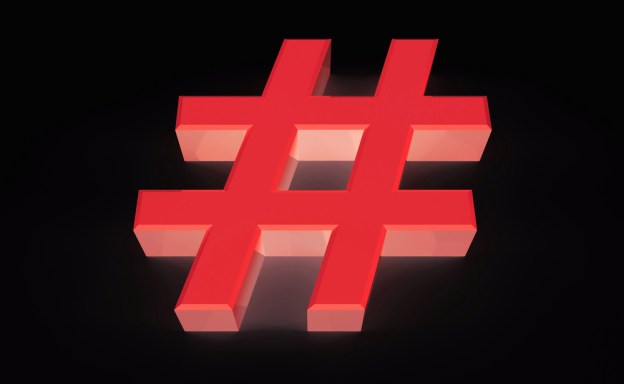 Twitter made the hashtag happen, but it couldn’t keep the feature exclusive. The versatile symbol found its way onto Google+ and Instagram, and recently Facebook is considering adopting the tool. Photo-sharing service Flickr declared its infatuation with the hashtag as well.
Twitter made the hashtag happen, but it couldn’t keep the feature exclusive. The versatile symbol found its way onto Google+ and Instagram, and recently Facebook is considering adopting the tool. Photo-sharing service Flickr declared its infatuation with the hashtag as well.
Now messaging app Path has joined the party.
Delighted to bring #hashtags to @path in 3.0.2 #betterlatethannever cc: @chrismessina
— Dave Morin (@davemorin) March 27, 2013
Does this mean it’s just a matter of time before the hashtag is a universal social function? It’s starting to look that way.
Three networks taking up the same popular tool at the same time sure sounds like a pattern – and if you look around, hashtags are everywhere. SXSW potentially had more hashtags than startups.
But Path’s hashtags might be different
Path bills itself as substantially different than Twitter, Facebook and their ilk. Its website creates this boundary by positioning Path’s competitors as complementary services. It says “For the occasional moment you’d like to share in public, you can share to Facebook, Twitter, Foursquare, and Tumblr.”
The creators call Path a “personal journal” to share with close friends and family, and it recently enjoyed a major revamp for its third version, one with push-to-talk and other messaging app-like features.
So how will Path benefit from these hashtags?
Twitter hashtags can serve as a marker for topic subjects between friends, but their central function still exists as a way to yoke discussion moments together publicly under one umbrella search term. If you want to find out about what the general Twitter population thinks of Beyonce, you just check #queenbey or #beyonce. So much of the hashtag’s value for Twitter (and Instagram) (and Vine) stems from its public nature.
And while Facebook originally positioned itself as a social network for IRL friends, it’s shifting into a “personalized newspaper” and the hashtag will be a service that can benefit public fan pages or people who set their status updates to public. It’s basically a gentle prod to encourage people to make their updates public.
But Path is still new, and after a data privacy scandal, it can’t abandon the premise that it’s supposed to be a social app for the general public. That means the hashtag will function as a way to search for conversations between friends. And that means it really won’t be as interesting to look through Path hashtags, since you’ll be confined to a much smaller group of your peers (and you will have likely seen their updates without the tag given Path’s emphasis on smaller social circles).
So the hashtag won’t revolutionize Path, but it could still help the social network gain attention from people who enjoy using the symbol on other services. There’s just something a little gratifying about seeing the words after the hashtag light up in clickable blue.


